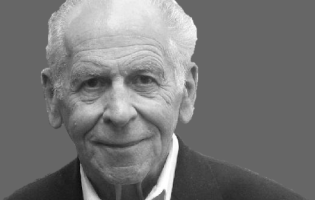WHO cites no proven benefit, but significant evidence of harm from coercive mental health treatments, including forced drugging, restraints, and electroshock.
By Citizens Commission on Human Rights, National Affairs Office
New guidelines for mental health services issued by the World Health Organization (WHO) are a strong call to action for United Nations (UN) member countries, including the United States, to take bold steps to ensure that their mental health services are free from coercion, including forced drugging, the use of physical and chemical restraints and seclusion, and involuntary institutionalization.
WHO’s rejection of nonconsensual mental health treatment echoes the long-time advocacy of the Citizens Commission on Human Rights (CCHR) to end involuntary treatment and harmful psychiatric practices and restore human rights and dignity to the field of mental health.
A series of reports issued in June by WHO emphasize that coercive mental health practices are used “despite the lack of evidence that they offer any benefits, and the significant evidence that they lead to physical and psychological harm and even death.”
“People subjected to coercive practices report feelings of dehumanization, disempowerment and being disrespected,” WHO states. “Many experience it as a form of trauma or re-traumatization leading to a worsening of their condition and increased experiences of distress.”
WHO’s call for an end to involuntary mental health treatment extends to those experiencing acute mental distress. WHO notes that individuals in mental health crisis “are at a heightened risk of their human rights being violated, including through forced admissions and treatment…. These practices have been shown to be harmful to people’s mental, emotional and physical health, sometimes leading to death.”
CCHR’s co-founder, Thomas Szasz, M.D., a psychiatrist and professor of psychiatry considered by many scholars and academics to be psychiatry’s most authoritative critic, agreed. “The most important deprivation of human and constitutional rights inflicted upon persons said to be mentally ill is involuntary mental hospitalization,” he wrote.
The UN’s Convention on the Rights of Persons with Disabilities (CRPD), signed in 2006, lays out the right to liberty and security for the disabled, including the mentally disabled. This right also challenges the coercive treatment legally allowable under involuntary commitment laws, even when “justified” by criteria like “a need for treatment,” “dangerousness” or “lack of insight.”
Beyond involuntary commitment, WHO points out that additional rights in CRPD to freedom from torture or cruel, inhuman or degrading treatment or punishment, and to freedom from exploitation, violence and abuse also prohibit coercive practices, including seclusion, restraint, and administering psychiatric drugs, electroconvulsive therapy (ECT) and psychosurgery without informed consent.
The WHO reports lay out a vision of holistic mental health services, as contrasted with today’s narrow focus on the diagnosis and drugging of individuals to suppress symptoms, a mental health approach that results in “an over-diagnosis of human distress and over-reliance on psychotropic drugs.”
Additionally, WHO states that a series of UN Human Rights Council resolutions have called for a human rights approach to mental health services and for nations to tackle the “unlawful or arbitrary institutionalization, overmedication and treatment practices [seen in the field of mental health] that fail to respect…autonomy, will and preferences” of those seeking to recover from mental health challenges.
Years ahead of the WHO reports, Dr. Szasz advocated an end to forced psychiatric treatment, writing: “increasing numbers of persons, both in the mental health professions and in public life, have come to acknowledge that involuntary psychiatric intervention are methods of social control. On both moral and practical grounds, I advocate the abolition of all involuntary psychiatry.”
As a human rights organization and mental health industry watchdog, the Citizens Commission on Human Rights has exposed and campaigned against the abusive use of involuntary institutionalization and psychiatric treatments given without consent, including forced drugging, restraints, and involuntary electroshock. CCHR’s Mental Health Declaration of Human Rights enumerates the rights we believe each individual is entitled to in the mental health system.
CCHR was co-founded in 1969 by members of the Church of Scientology and Dr. Szasz to eradicate abuses and restore human rights and dignity to the field of mental health.


